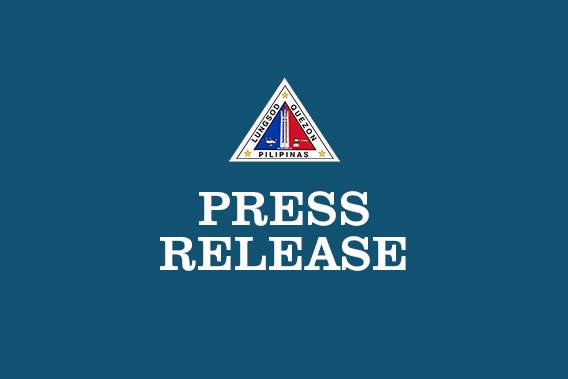
The Quezon City government’s own molecular laboratory can now process coronavirus disease 2019 (COVID-19) test results in just one day after it passed the proficiency test by the Department of Health (DOH).
The proficiency test of the Quezon City Molecular Diagnostics Laboratory was completed by the DOH-Research Institute for Tropical Medicine (RITM) yesterday and was released on Tuesday.
The city’s molecular laboratory obtained a perfect score of 100 percent after it got all the accurate results from five samples as verified by the counterchecking conducted by the RITTM.
Mayor Joy Belmonte welcomed the development, saying the molecular laboratory will help enhance the city government’s fight against the dreaded virus.
“Through this laboratory, we can now process test results faster, thus allowing us to act quickly on the isolation and treatment of patients,” said Mayor Joy Belmonte.
“Mas mabilis din tayong makakakilos pagdating sa contact tracing kaya maagapan natin ang pagkalat ng virus sa ating mga komunidad,” she added.
Dr. Rolly Cruz, head of the City Epidemiology and Disease Surveillance Unit (CESU), said the fast turnaround time provided by the molecular laboratory will be a huge boost to the city’s community testing program.
“Mas mabilis ang labas ng resulta, mas mainam para sa atin para agad nating mailatag ang mga kailangang pagkilos,” said Dr. Cruz.
Joseph Juico, QC COVID-19 task force head, said the approval of the molecular laboratory would mean less expense for the city as it won’t have to pay private hospitals and laboratories for the test.
“With this laboratory, Quezon City can now independently conduct tests and will no longer need to rely on other private labs who are hard pressed to produce results needed by other cities,” he said.
Juico added that the molecular laboratory is considered as a long-term valuable investment for the city as it can be used to identify and process other infectious diseases and for research purposes.
The molecular laboratory is housed in a three-storey building in Brgy. Teachers Village East. It has an area for data encoding, conference rooms and sleeping quarters for the 20 workers who will be assigned by the City
Health Department (CHD) to man the facility.
The molecular laboratory was built through the help of private partners such as Megaworld, Ayala Foundation, Boysen and Solaire.







